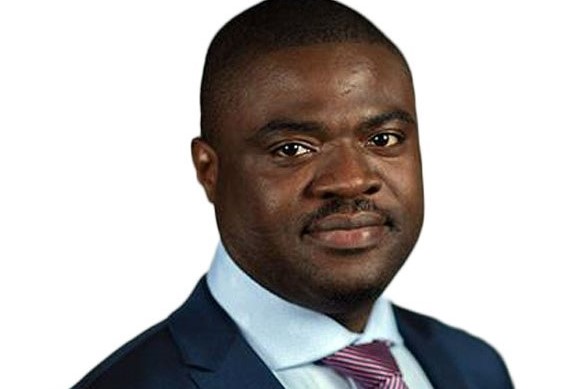Deputy Vice Chancellor, Academic, Research, Innovation and Strategic Partnerships (ARISP) of Afe Babalola University, Ado Ekiti, Professor Damilola S. Olawuyi, has called on governments at all levels to fully embed the United Nations’ Sustainable Development Goals (SDGs) into COVID-19 economic recovery plans.

Olawuyi, a professor of environmental law and Vice Chair of the International Law Association (ILA) worldwide, made the remarks during an virtual workshop on Tuesday, July 21, 2020 organised by the Nigerian Institute of Advanced Legal Studies (NIALS), in partnership with the ILA.
Themed “Progressive Realisation of SDGs in Nigeria During and Post COVID 19″, the workshop featured eminent speakers and experts, including the Director General of NIALS, Professor Muhammad Tawfiq Ladan; Professor Robert Home, Emeritus Professor of Land Law and Urban Management, Anglia Ruskin University, United Kingdom; Dr. Nkechikwu Valerie Azinge, Lecturer in Law, University of Lincoln, UK; as well as senior scholars at NIALS, including Professor Animi S. Temple, Franscisca Nlerum, Irekpitan Okukpon, and Osatohanmwen Eruaga.
In his keynote remarks, Professor Olawuyi noted, “Like the invisible enemy called COVID-19, many of the complex problems facing our world today are also lethal, tenacious and invisible. Whether we are speaking of poverty, hunger, climate change, corruption and financial crimes etc.
“We cannot see them, but we can feel their deadly and menacing impacts on human life and development. The SDGs provide important tools for countries to fight all invisible enemies. The SDGs are built on the idea of turning disasters and challenges to opportunities. To ensure that economic recovery efforts leaves no one behind, there is an urgent need to make the SDGs the basis and foundation of all post-COVID recovery plans, including economic planning, research, education and rulemaking in Nigeria.
“Without a SDG approach to recovery, effectively detecting, measuring, and reporting on the impacts of the pandemic, as well as progress made in addressing them, will be extremely difficult.”
While commending the Federal Government for the foresight and vision in releasing the “Building Back: Nigeria Economic Sustainability Plan”, with a stimulus package of N2.3 trillion, Olawuyi described the plan as a remarkable first step.
The don however emphasised the need to focus the stimulus package on small and medium scale entrepreneurship, climate-friendly ventures, and green technologies that can holistically improve social, economic and environmental conditions across Nigeria.
Olawuyi gave examples of green and climate-friendly recovery plans that have already been rolled out in the European Union, Canada and the United Kingdom. He also emphasised that “Building Back Better” after COVID-19 is not the role of the government alone; rather all stakeholders including businesses, civil society, and individuals have key roles to play in advancing the SDGs post COVID-19 in their respective spheres of operations.
In the ensuing panel discussions, Emeritus Professor Robert Home emphasised the need to provide tailored resilience and social support for individuals and communities that have lost their livelihoods during the pandemic.
Similarly, Dr. Nkechikwu Valerie Azinge, an international financial crimes and banking law expert highlighted the importance of addressing trade-based money laundering as a way of advancing the SDGs on economic growth and zero poverty.
She advocated the need for automation of trading systems to flag trade mis-invoicing, tax evasion, money laundering, and other illicit transactions that may further create loopholes in government revenue and public finances required for post-pandemic recovery.
Other eminent legal luminaries that contributed to the discussions include Professor Adebambo Adewopo, Professor Paul Idornigie, and a former Director General of NIALS, Professor Epiphany Azinge, who has been at the frontline of litigating China’s legal lability in international law for the COVID-19 pandemic.
In closing the session, the Director General of NIALS, Professor Muhammad Tawfiq Ladan, commended the exceptional leadership roles that government agencies are playing in monitoring and collating data on SDG progress in Nigeria.
He noted that such active data collation and measurement can help all stakeholders in pubic and private sectors, to better prioritise their efforts on key targets and goals that can enhance progress across all the SDGs.
